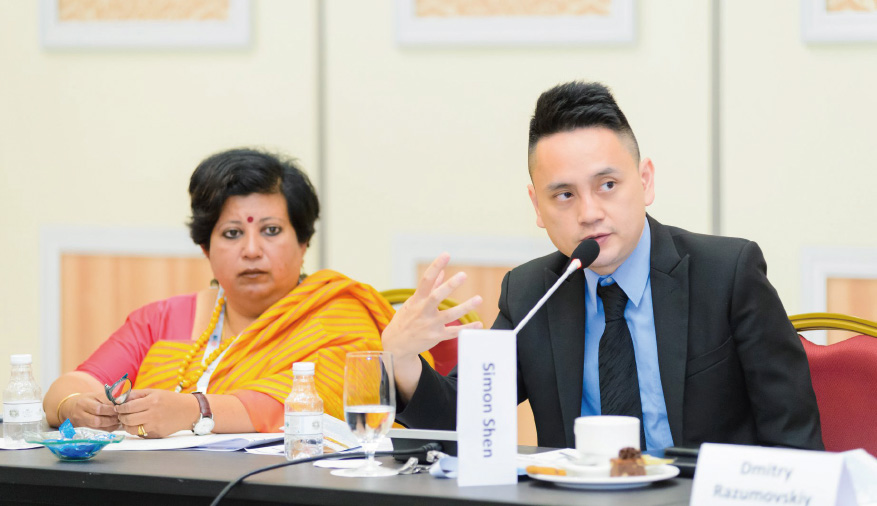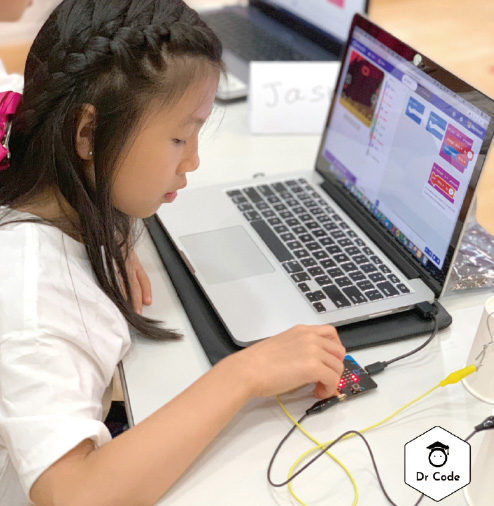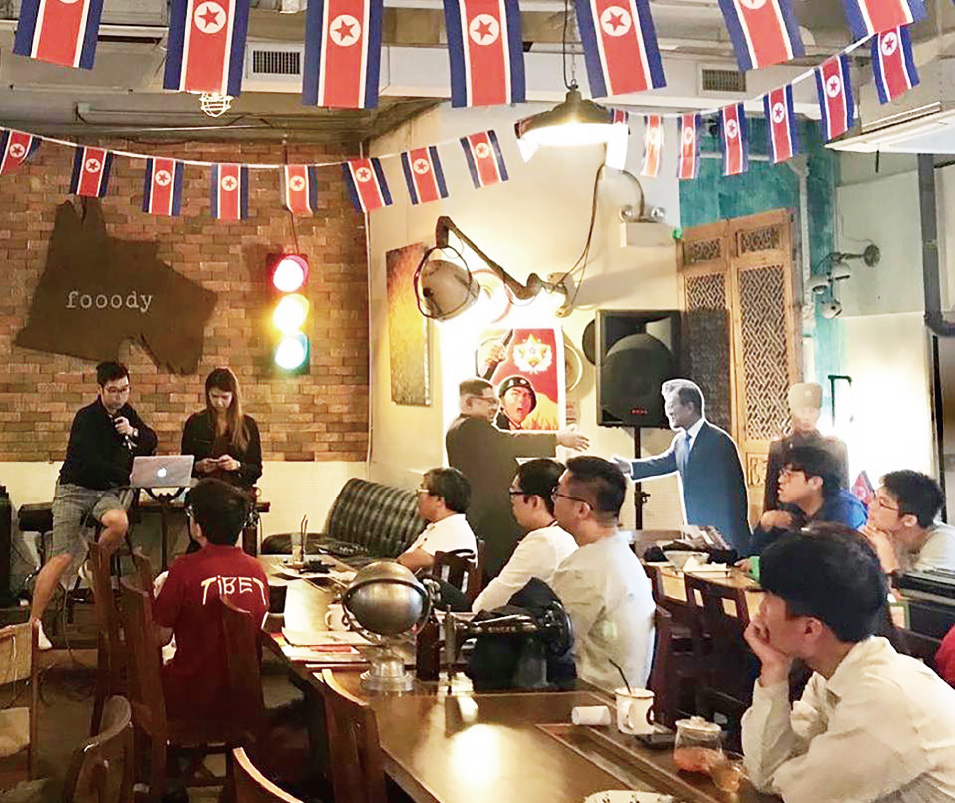International relations scholar Simon Shen became a business starter a few years ago, pursuing a strategy developed around everyday life and leisure to popularize international relations.

To most of us, international relations is a rather offbeat branch of knowledge. Shen is always looking for ways to make elements of this subject closer to life. “In the past, we tended to see reading, dining and leisure as individual activities. Today, we are talking about intellectual consumption. It is a concept of acquiring international knowledge and enjoying leisure in the course of daily food, clothing, housing and transportation. It also contains life enrichment elements.”
Put lifelong learning into practice in everyday life
Shen has noticed that in addition to consumption, people nowadays also want lifelong learning. Learning is not restricted to the classroom. Knowledge can be acquired from different experiences in everyday life.
 “In the past, social division of labor, such as the education and consumption mechanisms, is very rigid. Given today’s big data and AI trends, the whole world is thinking about disintermediation and many activities are becoming broken up into different fragments. In education, for example, the focus has been switched from academic subjects to different learning experiences. For instance, people can learn about places of origin and fair-trade coffee by drinking a cup of coffee. It is a matter of creating big things from small ones; a concept of edutainment.” A synergetic “education plus” industry can be built by linking up small things in life. Such is Simon Shen’s original purpose to promote international relations industrialization.
“In the past, social division of labor, such as the education and consumption mechanisms, is very rigid. Given today’s big data and AI trends, the whole world is thinking about disintermediation and many activities are becoming broken up into different fragments. In education, for example, the focus has been switched from academic subjects to different learning experiences. For instance, people can learn about places of origin and fair-trade coffee by drinking a cup of coffee. It is a matter of creating big things from small ones; a concept of edutainment.” A synergetic “education plus” industry can be built by linking up small things in life. Such is Simon Shen’s original purpose to promote international relations industrialization.
Synergy of six different aspects
Shen set up GLOs (Glocal Learning Offices) in 2017. “Glocal” is a combination of global and local. The international relations industry covers six domains, each with 4 to 5 companies.
“In tourism, we have a travel agent that specializes in discovery tours to destinations off the beaten track. In the creative domain, we have IP figure Mobile Girl from Korea. In lifestyle, we have a café that hosts featured talks on international relations. For education, we work with our partner in Singapore to offer coding education for children. On the research front, we work with a Taiwanese publisher to produce publications on international relations. In the community domain, we have Cultural Intelligence Quotient (CQ) which is a consultancy offering assessment systems for corporates.” Shen says frankly that none of their partners has a mindset of “making big money”. Contrarily, they hope to interact and encourage more like-mined companies to join them in enriching people’s lives.
Unconventional branding approach
 Some many think that combining companies of different businesses into an industry of international relations is a smorgasbord of totally unrelated elements. It is in total disagreement with the conventional way of business operation. Shen hopes to establish a brand with an unconventional approach that consolidates piecemeal elements to create synergy.
Some many think that combining companies of different businesses into an industry of international relations is a smorgasbord of totally unrelated elements. It is in total disagreement with the conventional way of business operation. Shen hopes to establish a brand with an unconventional approach that consolidates piecemeal elements to create synergy.
“My role is to build a brand of international relations industry. Piecemeal elements are placed in different locations of the brand domain to gradually develop an ecosystem where different companies can expand their client base or enhance their development potentials through the brand. It is a win-win strategy.” Shen stresses that every company within the international relations industry has its own businesses and operations. There is distinct division of labor and all activities are managed by experts of related fields.
Targeting at knowledge-based consumers
 What changes has Shen experienced during his journey from scholar to startup entrepreneur? Surprisingly, it was not changed in business theories or practical operations that challenge him, but rather identity changes. “Scholars are trained to detach and remain objective, i.e. stop acting in the first person and get impersonalized. By contrast, today’s startups often pride themselves on personalization and individualization. The impersonalization approach of scholars is therefore in conflict with the highly personal approach of the business world. I therefore have to change identities all the time.”
What changes has Shen experienced during his journey from scholar to startup entrepreneur? Surprisingly, it was not changed in business theories or practical operations that challenge him, but rather identity changes. “Scholars are trained to detach and remain objective, i.e. stop acting in the first person and get impersonalized. By contrast, today’s startups often pride themselves on personalization and individualization. The impersonalization approach of scholars is therefore in conflict with the highly personal approach of the business world. I therefore have to change identities all the time.”
The emerging knowledge-based consumer group is a target customer group for the international relations industry. “In this age of big data, the market is striking at “a consumption basket”. I often think that a middle-class consumer who likes holidaying in Iran would also enjoy writing or reading leisurely in a café. They might even be willing to sit through one or two hours of boring and intense knowledge talks. That is why our industry’s target customers are a group of knowledge-based consumers who have common traits and wish to acquire knowledge in their spare time.” Shen believes when the industry is more developed, it can assemble a more homogeneous customer group to form a complete industry ecology to achieve the ultimate goal of knowledge transfer.




